I make things with words for a living. MILFs are my kryptonite. Daughter of the Fifth House, Holder of the Sacred Chalice of Rixx, and Heir to the Holy Rings of Betazed.
Don't wanna be here? Send us removal request.
Link
Chapters: 1/3 Fandom: The Arcana (Visual Novel) Rating: Explicit Warnings: No Archive Warnings Apply Relationships: Nadia/Valerius, The Devil/Valerius Characters: Valerius, Nadia, The Hierophant, Lucio, Volta, Vulgora, Vlastomil, , Valdemar, Male Apprentice, The Devil Additional Tags: Hate Sex, Rough Sex, Pining, Obsession, Masturbation, Dubious Consent, Dubious Consent Due To Identity Issues, Basically Valerius Wants to Fuck Nadia So Bad It Nearly Ruins His Life, god what a mood, Nadia Route, Nadia Route Spoilers, Nadia Route - Upright Ending Series: Part 4 of "The Arcana" Ficlets Summary: Valerius has never stopped resenting Lucio for all the things he took and didn't earn - from the power and title that should have gone to Valerius, to the Prakran princess he married, who looks on the smitten Consul only as a friend.
But when Nadia falls into a never-ending sleep, Valerius' obsessive passion for the Countess leaves him vulnerable to a particularly crafty Arcana with plans of his own. And while he might be familiar enough with magic to know that the woman visiting him at night isn't the real Nadia Satrinava, Valerius has no idea that he's been fucking the Devil all along . . . and surrendering another piece of his soul every time.
Can the real Nadia find him in the Hierophant's realm and save him before he loses the last traces of himself? And what happens when she finds out exactly how he gave his soul away in the first place?
#help i'm valerius trash#the arcana#arcana#the arcana game#consul valerius#the arcana valerius#valerius#valerius x nadia#valerius x devil#the arcana nadia#nadia satrinava#countess nadia#the arcana devil#nsfw
21 notes
·
View notes
Photo


okay so I discovered @thearcanagame last month and instantly became helplessly addicted (it is a QUEERTASTIC TAROT-BASED FANTASY ROMANCE CHOOSE-YOUR-OWN-ADVENTURE NOVEL WITH OVER FIVE THOUSAND FICS ON AO3 ALREADY and I am furious at myself for being so late to the party). If you know anything about me BUT AT ALL you will be wildly unsurprised to learn that I instantly fell head over heels for both Muriel (”Big Sad Broken Man Wracked With Guilt Over Dark Past Who Needs to Be Loved Back to Life”) and Nadia (”Bossy Ice Queen MILF With Light Domme Energy, Just a Dash of Mommy Kink, and Boobs That Look Incredible In a Gown") and have already become a fic trash monster, to the point that I am writing fic in first person to keep it in the voice of the game. The things we do for our ships, man . . . .
Anyway here, have some smut, there’s definitely more coming.
Ace of Cups
Fandom: The Arcana (Visual Novel) Rating: Explicit Relationships: Muriel (The Arcana)/Reader, Apprentice/Muriel (The Arcana) Characters: Muriel (The Arcana), Apprentice (The Arcana) Additional Tags: First Time, Virginity, Muriel Route (The Arcana), Muriel (The Arcana) Route Spoilers, Emotional Hurt/Comfort, Sex In A Cave, Snowed In, Hand Jobs Series: Part 1 of "The Arcana" Ficlets
Summary: Muriel is on the verge of falling apart after losing Khamgalai and Morga, and failing to stop Lucio. Clearly there's only one way to snap him out of it - but the Apprentice doesn't realize it's something he's never done before.
Takes place in the Muriel Route, Book XIV (Temperance), Chapter 1, "Run," albeit with a few very minor plot changes. Artwork is from the Muriel gallery.
Eight of Swords
Fandom: The Arcana (Visual Novel) Rating: Explicit Relationships: Apprentice/Nadia (The Arcana), Nadia (The Arcana)/Reader Characters: Nadia (The Arcana), Apprentice (The Arcana) Additional Tags: Light Dom/sub, Dom/sub Undertones, Cunnilingus, Body Worship, Aged-Up Character(s), Female Apprentice (The Arcana) Series: Part 2 of "The Arcana" Ficlets Summary: After their visit with the High Priestess, Nadia and the Apprentice spend the night in the magical realms and discover a secret new desire to explore.
Takes place in the Nadia Route, Book XII (The Hanged Man), Chapter 1, "Contemplation," albeit with a few very minor plot changes. Artwork is from the Nadia gallery.
#the arcana#arcana game#the arcana game#nadia satrivana#countess nadia#nadia the arcana#muriel the arcana#muriel the hermit#muriel#arcana fic#the arcana fic#nsfw#the arcana smut
6 notes
·
View notes
Audio
Welcome back to Meta Station, where IT’S TIME TO CRY ABOUT MOMS!
Lyra finally finds a family, we learn a lot more about daemons, some Dramatic Backstory is revealed, a show finally presents a suicide storyline responsibly, and we have a LOT of thoughts about white male patriarchy. Also, the alethiometer finally works, Ma Costa is our new favorite character, and Fleabag’s Hot Priest has joined the cast which means this show officially has everything.
_________________________________________
0:00 - Thank Goodness for the Gyptians, Adults Lyra Can Actually Trust 0:17 – How This Episode Gets Suicide-As-Plot/Character-Development Right 0:37 – Daemon Discussion Redux: Farder Coram Edition 0:41 – Lyra’s Journey to Trust, Belonging, and a Working Alethiometer 0:53 – [Sidebar to Cry About Lyra and Ma Costa, the Ur-Mom] 1:11 – The Gyptians, the Magisterium, and the Value of Children 1:19 – Smash the Patriarchy, Part I: Who’s Outside the Machinery of Power, and Why It Matters That Boreal and the Master Are Black Men 1:33 – Smash the Patriarchy, Part II: Male Shame, the Complicity of White Women, and the Show’s Refreshing Decision Not to Woobify Mrs. Coulter 1:56 – No New Episode Next Week for Gay Reasons, But We’ll Be Back After American Thanksgiving!
26 notes
·
View notes
Audio
Welcome to Meta Station’s first recap of His Dark Materials, the perfect show for a podcast hosted by an atheist English professor and a Catholic playwright. Join us for a deep dive into the transformation of the books from page to screen, with side quests into climate change, Vatican II, Paradise Lost, gender fluidity, and Galileo. Plus, we lay out a careful plan about avoiding spoilers and then forget it immediately, of COURSE Erin knows the Milton quote Philip Pullman got the series title from, and Claire hops in the wayback machine to reminisce about being a youth minister when these books first blew up in the U.S.
Grab your alethiometer and your bottle of secret crypt wine, we’re going on an adventure!
* * * * * * * * * * * *
0:00 – Hello, New Listeners, and Welcome Back, Old Friends! 0:02 – Page to Screen Adaptation, Part I: Asriel, Lyra and Narrative Perspective 0:21 – We Stan a Relatable 11-Year-Old Who Is Sometimes a Butthead 0:27 – Page to Screen Adaptation, Part II: Dramatic Irony, Pacing Big Reveals for Television, and How Ruth Wilson Almost Convinced Us, Too 0:44 – The Gyptian Daemon Ceremony: Our Need for Ritual, the Magisterium’s Dehumanization of Religion, and the Return of Claire’s Catholicism Corner 1:10 – Pan-Daemonium 1:34 – Galileo, Climate Change, and Dust: The Politics of Scientific Knowledge 1:55 – The Magisterium, the Master, and the Moral Bankruptcy of Incentivizing Ignorance 2:02 – Erin Rambles On About Miltonian Cosmology, and All Is Right With Meta Station
44 notes
·
View notes
Photo






choose your fighter
rikes pros: large stick fends off the enemy cons: conspicuous height
geords pros: timeless fashion sense cons: can’t play the mandolin
whiff pros: the only one with basic self-preservation cons: not a merry man
bevs pros: miraculous healing powers cons: sympathetic towards every opponent
bok troi pros: +1701 willpower upon eating chocolate cons: none. she is perfect.
dates pros: head like a dome cons: knows too much
3K notes
·
View notes
Video
tumblr
#my first introduction to john mulaney years and years ago and i still think of it at least once a week#my brothers did this once in a diner with 'monster mash'#john mulaney
944K notes
·
View notes
Text
depression culture is doing four face masks in a week but not taking a shower
#depression#mental health#self-care#ya girl is struggling rn#writing a book is hard#also the world is on fire#so there's that#anyway time for another face mask that will fix all my problems!!!!
7 notes
·
View notes
Note
Thank you so much for you La Casa de Papel rec post! I had watched the first two episodes ages ago, and enjoyed them, but I struggled how the stakes were presented and I was convinced it would go grimdark and turn on it's women so I didn't continue. Saw your post last week and thought '...I can trust Claire'. Just finished S1 and I AM HAVING SO MUCH FUN. Omg, I forgot that it was possible to have my heart in my mouth this much and have it still be fun.
I WOULD NEVER LET YOU DOWN I PROMISE
It really is incredibly refreshing to watch a show where the tone balances drama and fun this deftly. Like a lot of folks, I came to this show after The 100’s boner for shock deaths and sheer disdain for its audience finally broke me after they killed off Kane and Abby, and then Jason and Kim went on the post-season press circuit to breezily laugh and swap jokes about how fun it is to kill off characters and make audiences suffer as much as possible, and how the point of those deaths was that there was no point because, you know, that’s realism. The only showrunner who handled post-finale interviews worse than that was Veronica Mars’ Rob Thomas, whose utter disdain for fans, and for women in general, was genuinely astonishing. And this comes hard on the heels of the Game of Thrones finale just completely shitting on season after season of plot development, illustrating that Benioff and Weiss still don’t actually understand what anyone ever liked about their show. So I arrived at this show seething with so much frustration toward male writers who are more interested in violence than relationships that I don’t know that I would have been willing to dive into a high-stakes bank heist drama, written by a man and featuring multiple female protagonists, if I hadn’t had assurances from people I really trusted that I wasn’t going to get fucked over again.
And I didn’t!
Isn’t it amazing to watch a television show made by someone who genuinely wants you to be having a great time?
Isn’t it incredible to feel like the creators want you here?
Isn’t it wild to realize that all those writers trying to tell us that a story cannot have both high-stakes action and a heart were maybe just … uh, not very good writers???
I’m actually really glad you brought up the misogyny factor because that’s one of the things I’ve been thinking about a lot with this show. Because I think it’s actually doing something kind of extraordinary in the way it handles the reality of being a woman in a masculine, violent world – from everyday workplace sexism to abuse and assault. And it’s doing so by carefully avoiding the traps many other male writers fall into when they use “realism” as justification for telling stories where women are tortured and brutalized for entertainment.
As though women need to be reminded by men that constant threats of violence are our reality.
As though there are no other kinds of interesting stories to be told about our lives. As though no one could possibly want to watch us live, thrive, love, grow, find happiness, save the day, win, because that’s “not realistic.”
Sometimes this happens because the writer is a man who just blatantly doesn’t give a fuck about women and isn’t pretending otherwise, which at the very least makes them easier to spot (and more self-aware). But a lot of male showrunners, filmmakers, authors, etc., genuinely think of they’re helping when they torture their heroines for entertainment, and the reasons for that disconnect tend in my experience to be one of the following three things:
A kind of wish-fulfillment scenario about being the only male writer in the whole wide world who is sensitive and clever enough to take some shitty, sexist trope (sexual assault, exploitative nudity, stray-bulleting a lesbian) and actually pull it off, because no matter how many times women say “please God no, we are so sick of that,” he knows he can change our minds because he’s just that good;
The fetishization of women’s pain, in which the relationship between male writer and female protagonist becomes a creepy way to play out real-world power dynamics and let some guy work out all his issues with women by turning his heroine into a punching bag;
The misguided belief - of which women writers can also be guilty, by the way - that the heroic endurance of horrible suffering is the only way to show the audience that a female character is strong.
All of these, obviously, are infuriating, and infuriatingly common, and you are absolutely thinking of at least one example for each of them right now, I can feel it. So the older I get, the more I become unapologetically misandrist in my skepticism toward male showrunners writing female characters - especially in dramas, and especially especially in dramas where some degree of violence is built into the nature of the world.
All of this is to say that I had the same initial wariness about this show that you did, and I too was reliant on the recommendation of savvy feminist fangirl friends who I knew in my heart would never lead me astray. But there was always a part of my brain that couldn’t quite trust it. I mean, it’s a high-stakes heist! Everyone has guns! There are male criminals and female hostages! I know how the rules of television work! What are they going to do, not gratuitously murder any women?
… isn’t it depressing to realize how numb we are to the prevalence of this? That we’ve come to just expect it? That all those male writers and their Big Shock Deaths are ho-hum and predictable because actually it’s more shocking when women don’t die onscreen?
We’ve been subjected to a near-Pavlovian level of social conditioning by violence-obsessed white men in Hollywood, who have had almost sole control of the way stories about girls and women are told onscreen. A lot of writers who are trying to be intentional about avoiding harmful tropes do so by creating a world where horrors like police brutality, rape, homophobia, etc., simply don’t exist. And I’m not knocking that approach, by the way; many of my favorite shows, from Star Trek to Schitt’s Creek, posit a world where marginalized folks get to be free from the shit that burdens us daily in real life, so the show can focus on exploring all the other different kinds of stories that can be told about women, or people of color, or queer people, which aren’t typical “struggle” narratives. I happen to think there’s nothing wrong with this kind of fantasy escapism, and that we need more of it, and that it serves a genuine purpose by giving us space to imagine what a world free of that shit could look and feel like.
But La Casa takes a completely different task, one which is quite frankly a lot more risky from a male showrunner: this show has built a world which is, in fact, full of terrible men who do terrible things to women, yet the story is never sensationalist, exploitative, or burdened by misogynist tropes. Which is actually kind of extraordinary.
The secret?
Centering the woman’s emotional experience and keeping the narrative entirely in her point of view.
Here’s an example of what I mean.
[mild ST spoilers! skip this if you’re the only person in the world who took longer to catch up on s3 than I did]
This season on Stranger Things, two of the young female characters had storylines that drew on really ugly sexist tropes, but they were presented in very different ways; one was very clearly intentional, and one was almost entirely unexamined. Nancy goes to work for the newspaper, and every single man she works with is gleefully, enthusiastically horrible to her. It is instantly clear from the minute these characters are introduced that they are Bad People, and we want bad things to happen to them. The pack of gross old dudes sitting around a table laughing at the young girl with career aspirations, telling her to just shut up and get them coffee because that’s all she’s good for? That sexist trope was conscious. The storyline is entirely framed around Nancy’s point of view.
But then elsewhere, we have Eleven and Mike in a relationship which has become physical, and for most of the season between the first and last episodes (which were the only ones I thought got the tone of this relationship right), Hopper turns into every stereotypical shotgun-toting dad who threatens the boy who wants to date his daughter and develops an extremely uncomfortable degree of violent possessiveness over Eleven’s emerging teen sexuality. That sexist trope was not conscious. The storyline is framed around Hopper (and to a lesser extent, Mike).
The way we know the difference between conscious and unconscious is that misogynist behavior is intended to be a dealbreaker with the newsroom guys; it’s designed to make us hate them. But we’re still supposed to love Hopper, and to believe in his love for Eleven (and I do, don’t get me wrong, I just think they deserved way better writing). But you don’t get any brownie points from me for showing us you know what grotesquely obvious workplace misogyny looks like if you turn right around and undercut that by not noticing that you’ve also inserted misogyny into a father/daughter relationship that didn’t have any before. The Duffer Brothers did not take us inside Eleven’s emotional experience of having her behavior policed by older men the way they did with Nancy … probably because, like many men, they get that asshole dudes telling women to get back in the kitchen and only speak when spoken to is sexist, but a dad threatening his daughter for developing sexually is just a classic funny joke.
This is the thing that La Casa does in an extraordinarily careful way: when sexist behavior is depicted onscreen it is always, always, always conscious, and it centers the woman’s experience.
I’ve put some examples below the cut, for folks who have seen the show or don’t mind some mild-to-medium spoilers.
Anyway, I’m so glad that you took the leap! For everyone else who is seeing this post and is still on the fence, I will tell you that three seasons in, the show has done right by every one of its women. That doesn’t mean bad things don’t happen - it IS a high-stakes heist drama - but they don’t happen in a misogynist or exploitative way. There’s not one female character on the show whose arc I haven’t loved.
Anyway, read on for spoilers, and my thoughts on some of the Terrible Men of La Casa and why the way they are written is so brilliant and insightful and, yes, feminist af. TW for mentions of domestic violence and sexual assault.
ARTURO

One of the most upsetting scenes in the whole series is Arturo and Monica’s reunion, after he learns she isn’t really dead. For a split second, both Monica and the audience believe there’s a chance that maybe this miracle will be enough to force Arturo to get his shit together, to realize how much he caresabout her, to try and make some kind of effort to be a better man.
Instead, he basically assaults her.
Watching her stand frozen in place while Arturo gropes her all over and dry-humps her until he comes in his pants is indescribably awful, and it is played, correctly, as a horror story. The camera stays on Monica’s face as that last little flicker of hope is extinguished, and she is forcibly reminded that she is nothing more than a body to him. He’s not even looking at her. He’s essentially just masturbating against her, and we watch her face the entire time. She is the center of this moment. (Contrast this with Sansa’s rape on Game of Thrones being framed, narratively, as something that happens to Theon.)
It’s one of the most disturbing things that happens to any woman in this entire show, but it is not gratuitous. Monica is not sexualized to us, to the narrative; she’s in a shapeless red boiler suit with blood in her hair. The only person in that moment who is looking at her as a thing to be fucked, instead of a person, is Arturo. And Monica’s realization that even having her restored to him from the dead isn’t enough for this to turn into the kind of relationship she wants it to be is what finally prompts her to cut the cord and free herself from him completely. And it’s important that that moment of reckoning happens in a moment like this, which is entirely about Arturo, so that when she decides it’s over, it’s actually not about Denver at all. She’s not leaving one man for another man. She’s just realized she’s done being treated like shit by a man who will never change, and she deserves better.
ALBERTO

From the beginning, Alberto’s abuse of Raquel is presented as simple fact, and this alone is refreshing. There’s none of that deliberate, cynical ambiguity, where writers think it’s more daring and interesting to leave the real story of something horrible like this unresolved, or to Rashomon the whole thing by presenting both people’s perspectives and then shrugging their shoulders like “WE’LL NEVER REALLY KNOW, THE HUMAN MEMORY IS SUBJECTIVE AND LIFE IS COMPLICATED!” So just to start right out of the gate by believing the survivor is really key, as is the fact that we stay in Raquel’s perspective. She is the one given the space to tell the story of what happened, to an empathetic listener who receives the story with the appropriate horror and shock. It’s also smart, I think, that Sergio is both well-intentioned and naïve here; Raquel has to patiently explain to him how abuse dynamics work, in a way I’ve frankly never seen it presented onscreen. The fact that he takes advantage of an opportunity to destroy some crucial evidence by also finding a way to fuck over Alberto is incredibly endearing, but Raquel does not need him to save her. She is stuck in a nightmare situation where her abuser is still her colleague, where almost everyone she works with is more loyal to him than to her, and where she is occasionally obligated to ask him for favors or help, all while attempting to explain to a small child how restraining orders work, all of which is unimaginably traumatizing. And she is allowed to experience that trauma and pain, she’s not forced to be stoic and invincible, but she also does not need a good man to save her from the bad man any more than Monica did. Their journeys are about themselves.
PALERMO

It is a really bold move to have a character say such ugly, misogynist things straight to camera as Palermo does in that repellent “Boom Boom Ciao” monologue, which is why it’s remarkable that the scene is so funny. As with Arturo and Monica, above, the trick is in how the camera frames it. And, again, it’s the women’s faces that shape the tone of the scene. Our close-ups on Monica’s frozen misery give us the horror of the one scene, while her amused, exasperated eyerolls at Palermo add to the comedy of the other. As Palermo explains how the best sex is gay sex because there are no women (despite the Professor wearily reminding him that lesbians exist, perhaps the funniest moment of the whole scene), we pan around the table and watch all the female characters groan, roll their eyes, pour themselves another drink, or fire back their own sarcastic retorts. Palermo is that asshole who always says offensive shit on purpose for attention, and being offended gives him what he wants, so eventually all you can do is say “fuck it”, grab the wine and take it inside, where all the girls can keep drinking and bitch about him in private. This scene is quite frankly a master class in how to write a sexist character without presenting a sexist narrative. The butt of the joke is Palermo the whole time; we aren’t meant to find him sympathetic or even find his misogyny all that funny. The humor of the scene comes entirely from the way the women respond to him, and the fact that the power remains in their hands the whole time.
(Also, Raquel can come ten times in a row, that’s a fun fact we learned.)
ANGEL

The relationship between Angel and Raquel is really interesting because it’s a remarkably subtle depiction of the kind of “nice guy” misogyny that is often harder to identify and name. Angel is in love with her and is jealous of every other man in her life, because it’s the kind of toxic love that is really about possession and control. She’s supposed to be flattered that he would leave his wife for her, she’s supposed to be grateful that he offers to lie and claim he saw the bruises Alberto gave her. Everything kind he does has a price tag. And Raquel, as so many of us do, has to gamely smile and laugh and pat him on the arm and reassure him, because this is the cost of being a woman in the world. And as with all “nice guys”, the journey from “I love you” and “you’re a fucking bitch” is not actually all that long. And, again, we are shown all of this from Raquel’s point of view; the narrative isn’t validating Angel’s jealousy as reasonable or condemning Raquel for somehow leading him on. We are entirely on her side, sharing her weariness that even the guy who is arguably her closest male friend and ally at work can’t really and truly be trusted to treat her as an equal. Whether because they’re in love with her or want to fuck her or resent her for being the boss or hate her for accusing Alberto of abuse, every man in that tent has some kind of baggage towards Raquel, which frankly feels like an entirely realistic depiction of a woman in a male-dominated workplace.
I fucking love this in a show written by a male showrunner. What a goddamn relief to realize that there are, in fact, men in the world who are capable of understanding this phenomenon and why it’s so exhausting for women to put up with. When Angel goes full Drunk Asshole at the end, I wanted to cheer, weirdly; I was just so grateful to have it made so clear that no, we are not supposed to feel bad for him because Raquel wants to fuck someone else. He is the one in this situation whose behavior is out of line.
BERLIN

Berlin is one of the show’s most fascinating characters. He’s Sergio’s shadow side, a total chaos agent masquerading as the super-organized team leader, and misogyny is one of his most defining character traits. He spends a lot of his time hurting women, frightening women, threatening women, telling other men how terrible women are, and making the women around him want to shove him off a cliff. His treatment of Ariadna is the most outright villainous thing any of the criminals do during the entire heist. Women in danger situations do their own safety calculus, and the show doesn’t judge any of them – Ariadna included – for the choices they make in order to survive. She weighs her options and decides that surrendering to Berlin is a safer option than rejecting and angering him, and that perhaps this way she’ll be afforded some degree of protection. The way Berlin abuses that trust – with sexual assault, intimidation, psychological torture, and all manner of other horrors, culminating in the genuine risk that she might be forced to die at his side on a suicide mission – is unspeakably disturbing.
How do you make a violent character whose words and behavior are continually cruel to women a compelling member of a found family ensemble?
Again, perspective.
Tokyo and Nairobi are under no delusions that Berlin is a good person, and butt heads with him constantly. So do many of the others. But in a crunch – when something goes wrong, when they’re under attack, when they need him to step in and be the team leader – they all have each other’s backs. I appreciated this for the same reason I appreciate the nuance of Raquel periodically having to accept help from Alberto and Angel. Sometimes women don’t have the luxury of removing ourselves from environments that contain shitty men. Sometimes, to do our jobs, we have to tolerate them, let them be useful, occasionally be nice, grit our teeth and get through it. Berlin and Alberto are abusers who are very good at their jobs. This is infinitely more realistic than depicting an abuser as some one-dimensional monster you can spot coming a mile away. Berlin is handsome and charming and has a kind of creepy charisma, like the snake that hypnotizes everyone in The Jungle Book. It makes sense that he managed to lure five different women into marrying him, and also that all five of them eventually filed for divorce.
You have to thread the needle so carefully with a character like this. Lean too far one direction, and you run the risk of making him so likeable and engaging that you’re minimizing the horror of the things he does. Lean too far the other direction, and he becomes such a cartoonishly evil villain that the story loses all narrative interest. Writing a character like Berlin is a high-wire tightrope act without a net, and if you fuck it up, you could fuck up so bad you ruin everything else the show is trying to do. Which is why the balance they manage to strike is such a masterpiece. Not once, not ever, does the narrative downplay the fact that he is a violent misogynist who takes pleasure in the suffering of others, yet we also never forget how vital he is to the team, and we see Nairobi in particular really wrestle with the implications of that – how you can hate someone, and also trust them to have your back under fire, at the same time.
All of this is by way of saying - the key, I think, to creating a world where women are allowed to rise above the terrible things that are done to them by men in a way that isn’t simplistic or exploitative or stepping into unexamined sexist tropes, is to keep the women’s reactions at the center of the story, and that’s one of the things I think this show does best.
#ourstoriesareaboutwolves#tw: domestic violence#tw: sexual assault#la casa de papel#money heist#alberto vicuna#berlin#palermo#angel rubio#arturo roman#misogyny onscreen#feminism#representation#sexism#i trust like three male showrunners in all the world and this guy is one of them now#seriously la casa does right by all of its women#garbage men get what's coming to them and the women rise above it and it's magic#stranger things spoilers#money heist spoilers#la casa de papel spoilers
97 notes
·
View notes
Note
I just wanted to thank you for talking about La Casa de Papel. I'm in love and it is exactly what my heart needed right now.
isn’t it the greatest??? that’s exactly how I felt about it too. it is legitimately healing to a degree which is surprising for a show all about crime. I love this found family with my whole entire heart and I’m dedicating my whole life to making everyone watch.

6 notes
·
View notes
Photo

Do you think it was in my plans to fall in love with the inspector in charge ?
201 notes
·
View notes
Photo








The Thin Man (W.S. Van Dyke, 1934)
97 notes
·
View notes
Text
The fact that Sherlock Holmes in the books canonically doesn’t believe that the Earth revolves around the Sun is friggin wild
46K notes
·
View notes
Photo

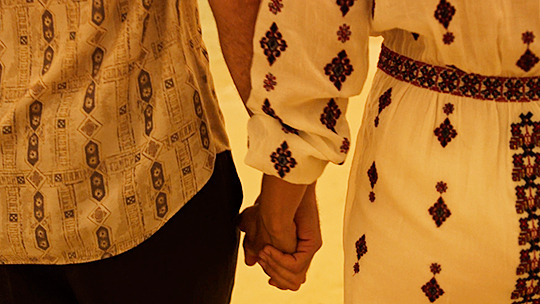


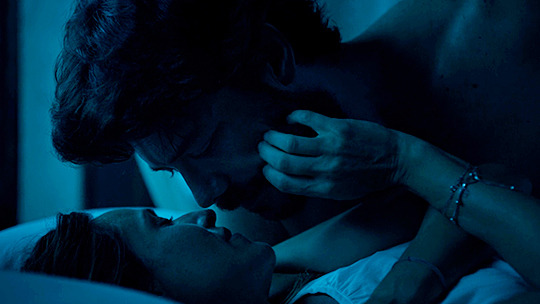


Raquel ahora todo es mejor porque estas conmigo. Porque estoy enamorado. Te lo digo ahora porque no se decirlo a la cara. Y perdóname porque, en la discusión de antes, el que estaba hablando era el inadaptado que no sabe disfrutar la vida, el Profesor.
Pero Sergio, yo… Raquel, yo lo que quiero es pasar contigo el resto de mi vida.
#Serquel#Marquilla#La Casa de Papel#Money Heist#Sergio x Raquel#Sergio Marquina#Raquel Murillo#OTP: Estoy Contigo#queue continuum
3K notes
·
View notes
Photo


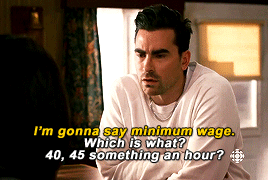
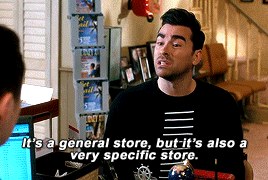
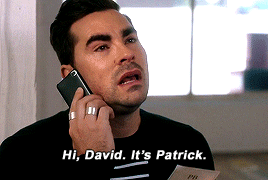

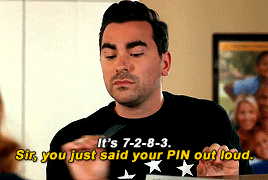


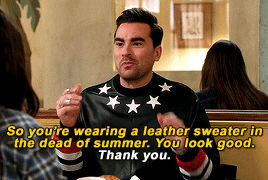
#a disaster
12K notes
·
View notes
Text
you: whats your sexuality?
me:
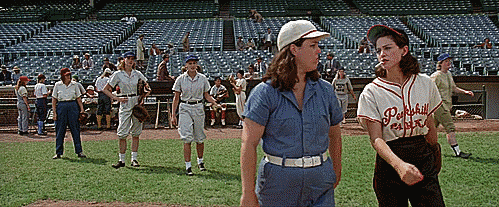
45K notes
·
View notes
Photo




635 notes
·
View notes








